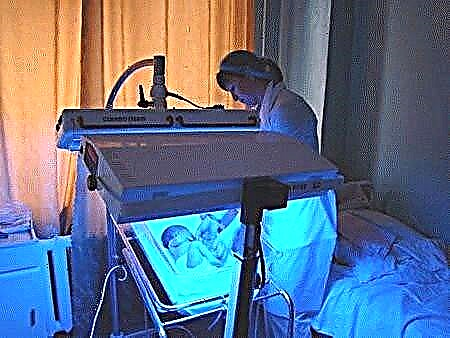During the youth of our grandmothers and mothers, even raising this question was not required. In Soviet times, there were no wards for the joint stay of a mother with a child. They were brought to feedings strictly according to the schedule - three hours in the afternoon and six hours at night. Or they didn't bring it at all if the child was asleep.
In this case, they fed with a mixture, without mother's help. After discharge from the hospital, the young mother strictly followed the recommendations of the doctors - strict feeding by the hour.
And, of course, the mother's heart was often squeezed by the calls of a child who was hungry prematurely. But there was nothing to do. After all, after 2 - 3 months she had to go back to work.
The baby gave up in a nursery. And there he was also expected to be fed according to the regime. After all, there were 15 kids for one teacher.
Pros and Cons of Regimen Feeding
Despite all this sad description of days gone by, this breastfeeding regimen had some of its advantages:
- gradually, the newborn adjusted to such a schedule, forming his own clear daily routine. The mother knew for sure at what time she could be absent without the threat that her nursing baby would suddenly suddenly want to eat;
- full night sleep, without awakening.
This is where the visible benefits end.
 Let's see what were cons of this method:
Let's see what were cons of this method:
- ignoring the needs of the child. The baby asks for breast not only in moments of hunger or thirst. The kid calls his mother if he is scared, hot, cold, worried, or just wants to relieve himself;
- little emotional contact;
- ps lactation. This is its rapid extinction, and lactostasis with mastitis;
- inevitable transition to artificial feeding.
But time does not stand still. Parental leave has grown significantly. And now feeding on demand is not an alternative, but a priority.
Many, especially mothers with breastfeeding experience, do not even think about whether to feed them by the hour or on demand.
Feeding a baby "on demand" is not some newfangled trend. So it was from time immemorial. The baby was almost constantly in the arms of the mother or was in the immediate vicinity. And he breastfed at his first request.
What does it mean to "feed on demand"? What conditions must be met?
- feeding at the first sign of hunger. Don't wait for a hungry roar. Hunger signs can be searching movements of the head, smacking, attempts to cling to a sheet or diaper.
In the first month, feedings can occur almost every hour.
Such frequent latching to the breast improves milk production in sufficient quantity. Then the intervals between meals gradually increase. The kid himself comes to his own regime;
- compulsory night feedings. They contribute to the intensive production of the hormone prolactin, which is responsible for milk production. The best time is from 2 am to 8 am.
With all the usefulness of night feedings, mom also needs to get enough sleep. Don't forget about it;
- the baby is breastfed not only because of hunger. In this way, mom can comfort him, relieve pain, smooth out unnecessary worries and emotions. It is even easier for the baby to pee and poop with the breast in the mouth.
It should not be forgotten that a child's anxiety can arise from illness or injury, not just hunger or discomfort;
- do not use pacifiers, add water or broths. This reduces the effectiveness and duration of sucking;
- stay at the breast should be regulated by the child. Children eat differently. Active ones satisfy hunger in 15 - 20 minutes and turn away. "Lazy suckers" can "hang" for hours. In this situation, they should be shaken or offered another breast.
Control your sucking time. Prolonged feeding can lead to cracked nipples.
Pros and cons of free feeding
For all its positiveness, this method has not only positive aspects.

Negative points
- a nursing mother cannot plan her time. Everything is subordinated to the needs of the child. A modern woman is accustomed to freedom of movement and pastime. At the birth of a child, especially a first-born, it is difficult for some new mothers to reorganize from a consumption regime to a giving regime;
- the demands of a hungry baby can be found in the most unexpected places. He will not care if you are traveling on public transport or visiting. Of course, special nursing clothes will come to the rescue. But many people around will not be ready for the sight of a eating baby;
- lack of sleep. Frequent nocturnal awakenings are very common for free feeding. But, of course, a lot depends on the baby himself and the level of his calmness.
For the purpose of mutual convenience for mother and baby, the crib can be moved close to the parent's bed. And at the first sign of anxiety, give the baby a breast.
Some experienced mothers got the hang of doing this, practically without waking up;
- weaning problems. It doesn't happen very often, but still. The weaning process will be either very painful, or at a fairly conscious age - 2-3 years.
Positive moments
But not everything is so sad. After all, there is much more positive:
- emotional and tactile contact. Breastfeeding is more than just a nourishment and satiation process. This is the strongest connection. So the baby feels protection, love, self-care. The mother of the first child develops a maternal instinct. And all the participants in this action are simply infinitely happy;
- an increase in the duration of breastfeeding. Free feeding stimulates the synthesis of the hormones prolactin and oxytocin, which contributes to the production of sufficient milk. And the more and longer the baby sucks, the more breast secretion there will be. No special teas or homeopathy;
- prevention of breast problems in the mother. If you breastfeed correctly on demand, both lactostasis and mastitis will pass by. The chest will be emptied in time, which will eliminate the possibility of their occurrence. With active feeding, you can forget about the previously existing mastopathy. It will simply dissolve;
- prevention of diseases in a baby. The usefulness of breast milk and the substances it contains is difficult to overestimate. This is ensuring the correct growth and development of a newborn child, and preventing allergies, and protecting against infection.
Ultimately, such a weighty organization as WHO considers feeding on demand as one of the principles of successful breastfeeding.
According to the famous doctor Komarovsky, feeding by the clock cannot harm the child. And it will grow and develop well as if it was a feed on demand. Mom can feed the baby and go about her business. If the child is full, then it may well be 2 - 3 hours without mother's breast.
On demand or on an hourly basis, it is the mother's personal choice to feed the baby. And knowing all the advantages and disadvantages of these methods is essential when making a decision.



